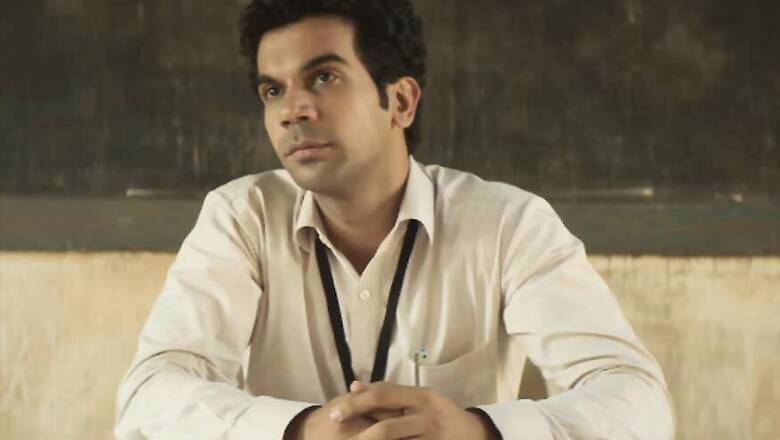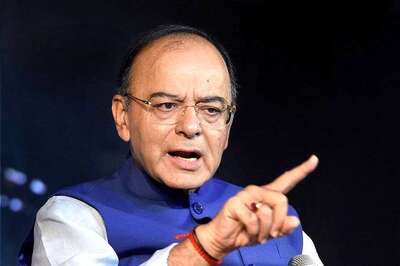
views
In 2017, Amit Masurkar's Newton made a bold statement by putting spotlight on India's imperfect electoral system and its vulnerabilities. There are so many scenes and dialogues that stick with you from Masurkar's biting political satire as their themes can easily find relevance in the times we live in.
The best part about the movie is that it doesn't house our greatest ideals about our democracy. Instead, the film boldly examines each and every process that finally leads to it.
Newton is an earnest, right-minded, consistently unsurprising movie about an idealistic government clerk, Nutan Kumar (Rajkummar Rao), who sets out on a mission to conduct free and fair elections in a Naxal-affected area of Chhattisgarh only to find himself bucking an entire system, including the administration that appointed him to his job.
The local tribal inhabitants are clueless about the voting process, let alone contesting candidates. In fact, some think they will earn money by voting. To an extent, Newton is a political film of extremes -- Nutan aka Newton must fight everyone to get his point of view across.
The opposition he comes up against ranges from the Maoists, CRPF Assistant Commandant Atma Singh, played by the incredibly talented Pankaj Tripathi, and sometimes his own escort team. Corrupt practices cannot be condoned amongst the government officials, the CRPF or the electoral team and that point of view makes Rao's Newton very unpopular.
Also Read | Films of the Decade: Why Pink Represents the Year 2016 in Hindi Cinema
He basically can't see the middle ground while fighting against a tide of institutionalised corruption that goes all the way to the top. However, perhaps the most striking moments of the film come when Newton ends up becoming the loser in his righteous battle as he eventually compromises his morals to accomplish his purpose. Yet, he can't stop flaunting his unabashed idealism. Take this scene for example: Newton holds the security force at gunpoint to allow villagers to cast their votes, but refuses to put down the gun even after they are done voting because there are still two minutes to the official close of voting hours.
Through Newton, Masurkar brilliantly depicts whether our idealism is realistic or desirable in the long run for those we wish to help. And, whether idealism is all we need and adopt to bring about the change in the society. It also highlights how often the tribal communities pay a brutal price for a government's agenda by being deprived of basic fundamental and legal rights.




















Comments
0 comment